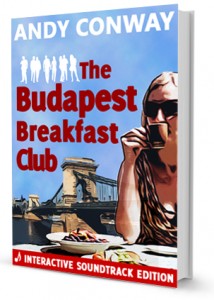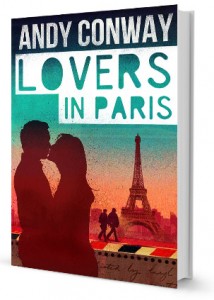 Anyone who’s ploughed through this site will know that I’ve got a bit of a thing for time travel stories, as well as a penchant for romcoms and tragic love stories like Somewhere in Time
Anyone who’s ploughed through this site will know that I’ve got a bit of a thing for time travel stories, as well as a penchant for romcoms and tragic love stories like Somewhere in Time . So it’s no surprise that I was pretty eager to see the long-delayed movie adaptation of Audrey Niffeneggar’s smash hit faux-lit novel The Time Traveler’s Wife. And, despite the sickly trailer, it doesn’t disappoint.
. So it’s no surprise that I was pretty eager to see the long-delayed movie adaptation of Audrey Niffeneggar’s smash hit faux-lit novel The Time Traveler’s Wife. And, despite the sickly trailer, it doesn’t disappoint.
Bruce Joel Rubin has done a great job distilling the novel’s sprawling scope to its essential elements without losing the sense of epic tragedy at its heart.
But where I chiefly find the film fascinating is in the question of genre, and where it stands in the particular genre of the Tragic Love Story (which I’ll call TLS from now on, if you don’t mind).
When I want to know more about a genre I go to two people. One is the late Blake Snyder. His 10 Story Types are great for getting a handle on what a particular genre is really all about, but I don’t think he fully nailed the TLS, which he tends to categorise under ‘Epic Love’, and I’d like to see it recognised as a sub-set all of its own, because maybe not all TLSS are epic.
The other person I go to is the Script Factory’s Lucy Scher, who’s made something of a specialty of studying genre and championing its importance with UK screenwriters.
In her excellent article Love on Screen: Romantic Comedies and Tragic Love Stories, she pinpoints the crucial differences between these two ‘chick flick’ staples. Yes, they are both about two people that the audience want to be together who suffer obstacles to their union.
But in romcoms it’s the present situation of the characters which is important. The obstacles to the union of our two main characters are situational and/or internal to the characters and are invested with humour… which is why we don’t need to know much about their lives, backgrounds or how they came to be the people they are. They’re usually products of their time, and they’re two people who don’t want to be together.
In the Tragic Love Story it is the lovers who want to be together and this is a key and significant difference. The obstacles are that one or both of the protagonists are violating and disregarding the power structures in their lives by pursuing the union… Therefore, we do need a wealth of information about the background of the characters in order to understand why the stakes are so high.
In most TLSS, the obstacle is class. This is why so many TLSS are set in the past. Class was much more of an obstacle then than it is now. It’s harder for us to accept it as a major obstacle these days, especially one with tragic potential.
While Romeo And Juliet and West Side Story
and West Side Story could make do with the class conflict of rival families/gangs that must never mix, most of the great TLSS offer class and one other conflict to create tragedy: Love Story
could make do with the class conflict of rival families/gangs that must never mix, most of the great TLSS offer class and one other conflict to create tragedy: Love Story (class and cancer), A Walk To Remember
(class and cancer), A Walk To Remember (class and leukemia), Titanic
(class and leukemia), Titanic (class and drowning), The Notebook
(class and drowning), The Notebook (class and dementia). .
(class and dementia). .
So how do you write a TLS in an age when no one cares about class?
The answer is to be found in other genres. Bruce Joel Rubin was onto this a long time ago when he created a smash hit by going the supernatural route with his screenplay Ghost , in which it’s not lovers transgressing the social divide that leads to tragic death; it’s tragic death that leads to lovers transgressing the divide between this world and the next.
, in which it’s not lovers transgressing the social divide that leads to tragic death; it’s tragic death that leads to lovers transgressing the divide between this world and the next.
A more popular route at the moment seems to be science-fiction, in particular, time travel. Look at the recent successes of The Curious Case Of Benjamin Button (how can love survive when he’s ageing backwards?), The Lake House
(how can love survive when he’s ageing backwards?), The Lake House (how can love survive when he’s two years in the future?), Eternal Sunshine Of The Spotless Mind
(how can love survive when he’s two years in the future?), Eternal Sunshine Of The Spotless Mind (how can love survive when she keeps having her memories of you erased?), and now The Time Traveler’s Wife
(how can love survive when she keeps having her memories of you erased?), and now The Time Traveler’s Wife (how can love survive when he suffers from chrono-impairment and keeps disappearing to other moments in his life?).
(how can love survive when he suffers from chrono-impairment and keeps disappearing to other moments in his life?).
The reason time travel offers such fertile ground for the TLS is that it can explore what love means when pitted against the random nature of the universe, and that’s much closer to how we feel about the world these days than outmoded notions of class.
Judith Maas, reviewing Audrey Niffeneggar’s novel in The Boston Globe, notes that ‘time travel becomes a means for representing arbitrariness, transience, plain bad luck.’ It’s love struggling against a hostile cosmos, but in this instance it’s something more. Natasha Walter in The Guardian refers to ‘the sense of slippage that you get in any relationship—that you could be living through a slightly different love story from the one your partner is experiencing.’
in The Boston Globe, notes that ‘time travel becomes a means for representing arbitrariness, transience, plain bad luck.’ It’s love struggling against a hostile cosmos, but in this instance it’s something more. Natasha Walter in The Guardian refers to ‘the sense of slippage that you get in any relationship—that you could be living through a slightly different love story from the one your partner is experiencing.’
Choosing to write a TLS over a romcom is a risky venture. By its nature, it’s not going to have an entirely happy ending, and there can be a fear of that in the commercial film world. People are supposed to like happy endings. Well, they don’t. Not always.
The highest grossing film of all time is a tragic love story (Titanic ) and another is the highest ticket-selling film of all time in North America and the UK (Gone With The Wind
) and another is the highest ticket-selling film of all time in North America and the UK (Gone With The Wind ).
).
The Time Traveler’s Wife won’t quite be doing the same business but it’s a decent addition to an important genre that is all too often overlooked.
 Yes, it’s another ebook giveaway. The Budapest Breakfast Club is now available FREE to download to your Kindle for the next two days (1-2 March) .
Yes, it’s another ebook giveaway. The Budapest Breakfast Club is now available FREE to download to your Kindle for the next two days (1-2 March) .





